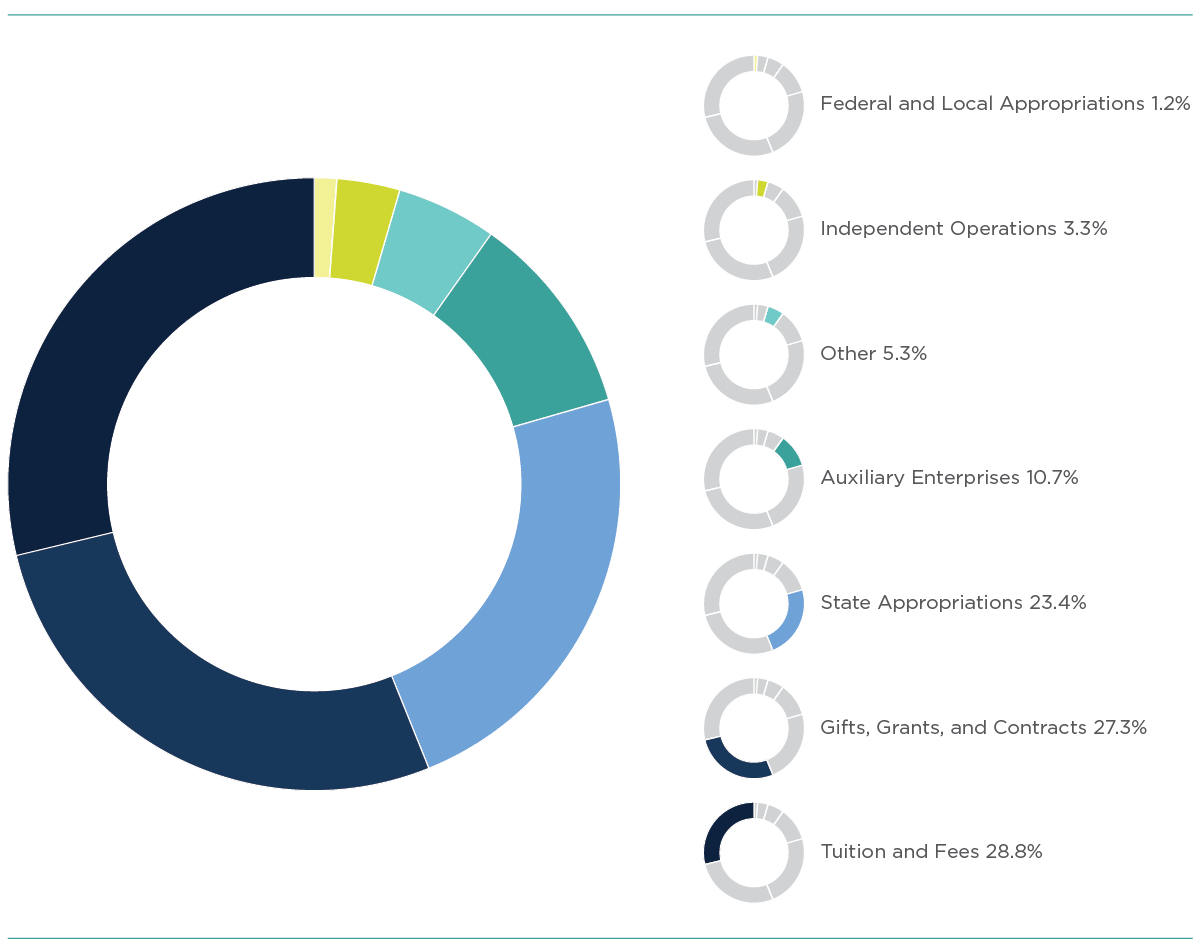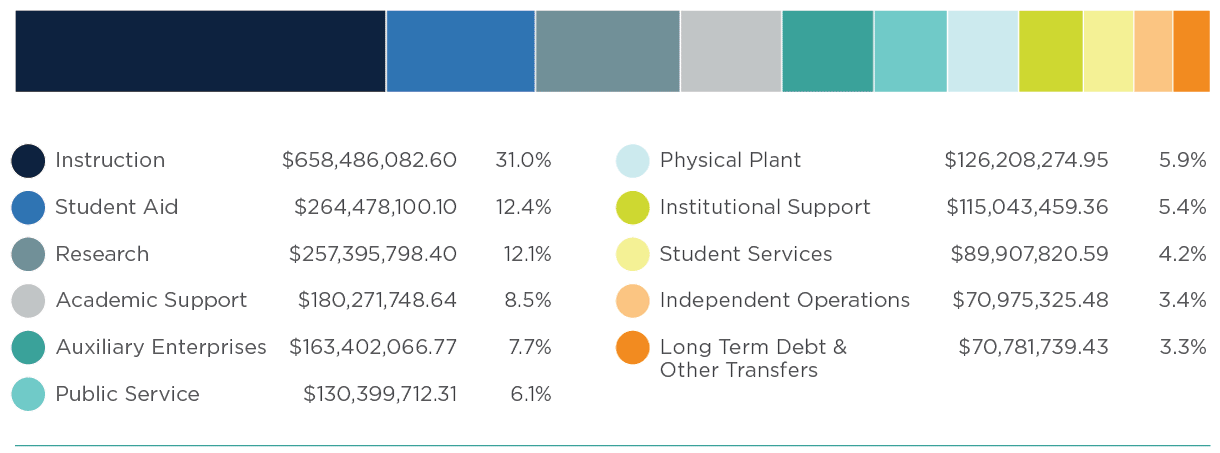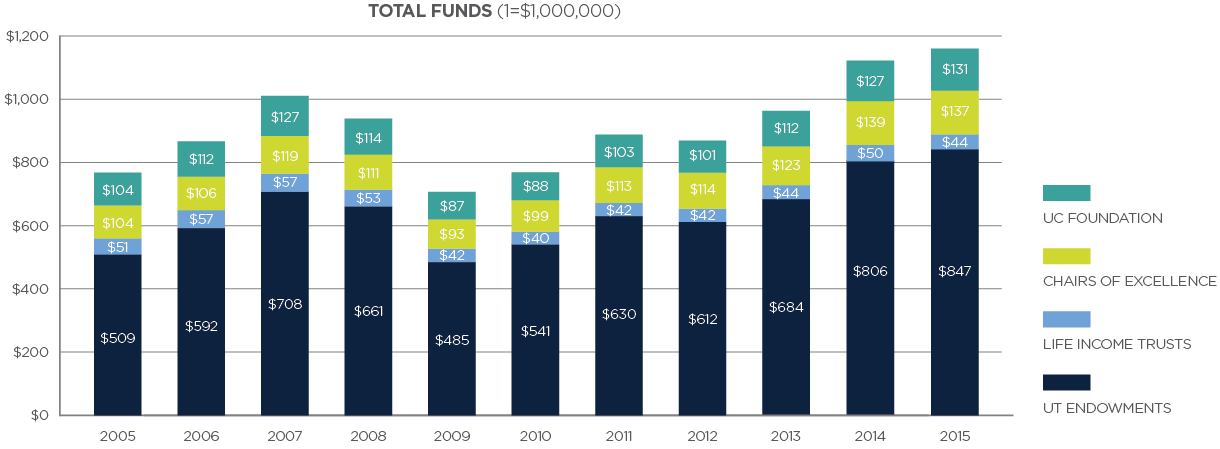
Total: $2,140,916,198.78

Total: $2,127,350,128.63
The sources and uses shown are not adjusted for tuition discounts of $196,448,979.22As of June 30, 2015 the amount of total assets invested for the benefit of the University of Tennessee held steady at roughly $1.1 billion, growing $38 million year over year. The solid returns of U.S. stocks on an absolute and relative basis masked a mixed global environment for investors. Generally, non-U.S. equity markets were negative for the fiscal period, as were broad segments of the global bond markets. Rising geopolitical risk, diverging economic trends, and severe declines in commodity prices, among other negative factors, came together to hamper global capital markets. Despite these challenges, most asset classes in which the University invests turned in a positive performance for the year, with only energy-related investments finishing in negative territory.
Five separate investment pools form the University capital base. Total endowments account for $847 million, which includes the Consolidated Investment Pool of $832 million and $15 million of separate endowments. Chairs of Excellence are $137 million; the University of Chattanooga Foundation, $131 million; and Life Income Trusts, $44 million. The accompanying chart displays these categories at each fiscal year-end for the past 10 years.

The Consolidated Investment Pool (the Pool) is the largest component of invested funds and was established in 1954 to allow for diversification and efficient investment of any endowment, regardless of size. As of June 30, 2015 the Pool produced a 12-month total return of approximately +1.0 percent, and +5.7 percent for the last 10 years. It distributed $33 million in fiscal 2015, an increase of approximately $3 million from the previous fiscal year. The funds distributed in any given year equal 4.5 percent of the four-year rolling average of the Pool’s market value at calendar year-end (December 31). The long-term goal of the pooled endowment investment program is to provide a sustainable and increasing level of support for University programs, while preserving the real purchasing power of the endowments for the future in perpetuity.
Finally, funds distributed by the Tennessee Chairs of Excellence and the University of Chattanooga Foundation were $3.6 million and $7.2 million, respectively, for the fiscal 12 months. Both of these categories are managed outside the Pool. The Chairs of Excellence are administered by the treasurer of the state of Tennessee for the benefit of all UT campuses. The University of Chattanooga Foundation is managed by its foundation board and supports programs at UT Chattanooga only.